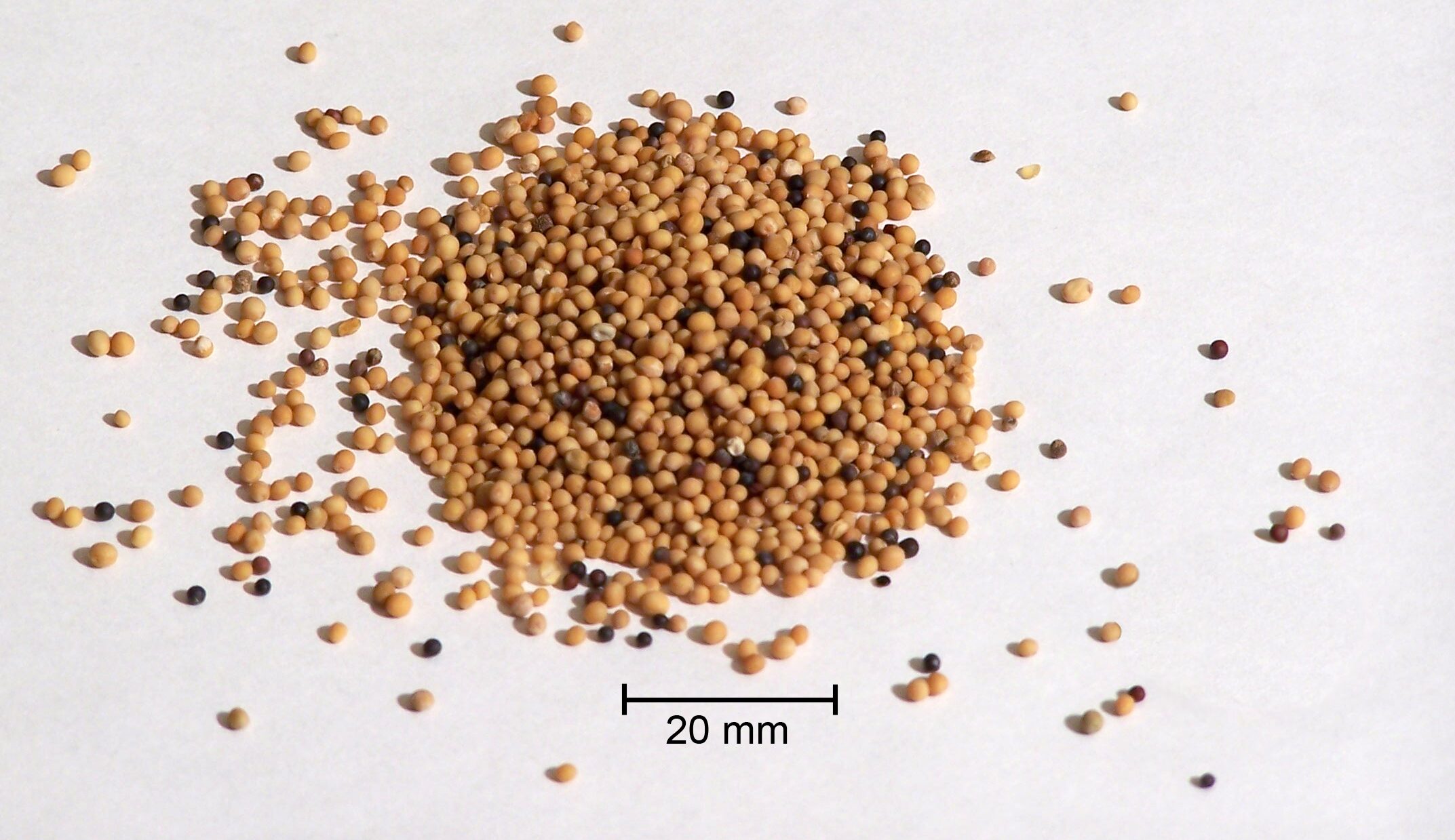Health Benefits of Mustard Seeds
What are the health benefits of mustard seeds?
Mustard seeds offer several health benefits:
- Rich in Nutrients: Mustard seeds are a good source of nutrients like fiber, protein, vitamins (such as vitamin A, vitamin C, and vitamin K), and minerals (such as calcium, magnesium, and phosphorus).
- Antioxidant Properties: Mustard seeds contain compounds like glucosinolates and myrosinase, which have antioxidant properties. Antioxidants help protect your cells from damage caused by free radicals.
- Anti-inflammatory Effects: Some studies suggest that mustard seeds may have anti-inflammatory effects, which could help reduce inflammation in the body and potentially lower the risk of chronic diseases such as arthritis, Crohn’s disease, ulcerative colitis, lupus, chronic obstructive pulmonary disease (COPD) and asthma.
- Digestive Health: Mustard seeds may aid in digestion due to their fiber content. They can help promote regular bowel movements and reduce the risk of constipation.
- Heart Health: Mustard seeds contain omega-3 fatty acids, which are beneficial for heart health. They may help lower cholesterol levels and reduce the risk of heart disease.
- Cancer Prevention: Some studies suggest that the compounds in mustard seeds may have anti-cancer effects. However, more research is needed to confirm these findings.
- Antimicrobial Properties: Mustard seeds have been used traditionally for their antimicrobial properties. They may help fight certain bacteria and fungi.
- Skin and Hair Health: Mustard oil derived from mustard seeds is rich in vitamins and minerals that can benefit skin and hair health. It is used in some skincare and haircare products.
It’s important to note that while mustard seeds offer health benefits, they should be consumed in moderation as part of a balanced diet. Some people may be allergic to mustard seeds, so it’s advisable to consult with a healthcare provider before incorporating them into your diet.
What are the health risks of mustard seeds?
Mustard seeds are generally safe for most people when consumed in moderation as a spice or as part of a balanced diet. However, there are a few health risks to be aware of:
- Allergic Reactions: Some people may be allergic to mustard seeds. Allergic reactions can range from mild symptoms like skin rashes, itching, and hives to more severe reactions like difficulty breathing and anaphylaxis in rare cases.
- Gastrointestinal Issues: Consuming large amounts of mustard seeds or mustard oil can sometimes cause gastrointestinal issues like stomach upset, diarrhea, or irritation of the digestive tract.
- Skin Irritation: Mustard oil can be irritating to the skin, especially when applied in large amounts or on sensitive skin. It may cause skin redness, itching, or a burning sensation.
- Risk of Contamination: Mustard seeds can sometimes be contaminated with bacteria, mold, or other pathogens, especially if they are not stored properly. Contaminated mustard seeds can cause foodborne illnesses.
- Interactions with Medications: Mustard seeds may interact with certain medications. For example, they may interfere with blood-thinning medications like warfarin. If you are taking medication, it’s best to consult with your healthcare provider before consuming large amounts of mustard seeds.
It’s important to consume mustard seeds in moderation and to be aware of any potential allergies or sensitivities. If you experience any adverse reactions after consuming mustard seeds, seek medical attention.




